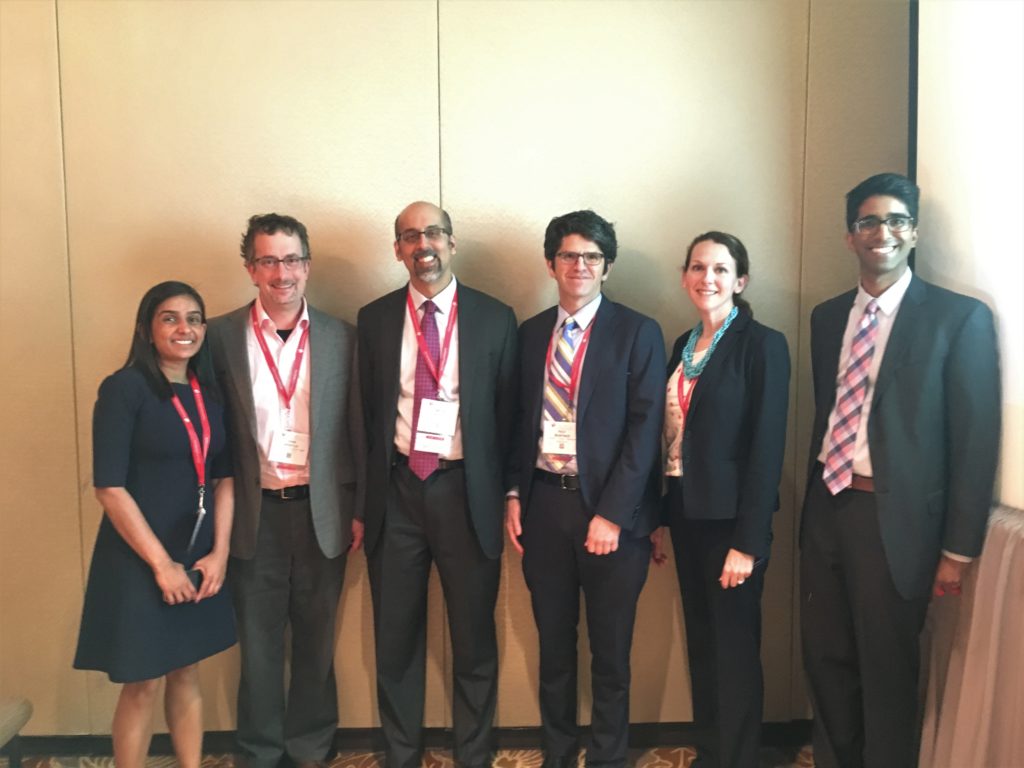
The panelists sat at the front, ready to answer questions from the eager early career professionals (and mentors) in the audience. It’s the Early Career Panel at the Council on Quality of Care and Outcomes Research (QCOR) Scientific Sessions on Saturday April 6th in Arlington, Virginia.
The session moderators – Dr. Rashmee Shah from the University of Utah and Dr. Faraz Ahmad from Northwestern University – welcome the audience and thank the panelists, and flip on the projector.
Against a stark white background, the moderators present simple advice they’ve received in the past – good or bad – and ask the panelists to discuss.
The first one: “You shouldn’t negotiate the salary for your first job.” This discussion prompt starts an interesting conversation – touching on topics not typically addressed in early career salary negotiation tips.
In terms of first-year faculty positions, Dr Paul Muntner, Associate Dean of Research at the School of Public Health at University of Alabama at Birmingham, points out that equity comes into play. No matter where you go, first-year faculty make similar salaries. That doesn’t mean you can’t negotiate for other things though. In fact, some other benefits may be worth more than an extra $1-2k in salary. For example – funding to covering moving expenses, protected research time, statistical support, and access to certain databases are some of many aspects of your new job (to be) are all things to consider.
Dr Umesh Khot, from the Cleveland Clinic, chimes in that drafting a “Letter of Understanding,” outlining the extras in your job packet and what your responsibilities will be, is an important document to have. For the clinicians in the room, protected time for research and covering for colleagues in clinic were two major topics. Having a supervisor who values your time in research means should you be called on to cover in clinic for someone way at a conference, that time will be made up to you. Should anything not live up to the discussion as you start your new job, you’ll have something concrete to reference.
Dr. John Spertus, from the University of Missouri – Kansas City, was the first to bring up salary gaps in the context of salary negotiation. Per Pew Research Center, race/ethnicity earning gaps are narrower in the STEM workforce than non-STEM, but more importantly to me, they still exist. Among those who work in STEM jobs, blacks earned 81% as much as whites and those of Hispanic ethnicity earn 85% as much as whites. A survey in the United Kingdom and Europe found that women working in STEM jobs earned a fifth less than their male colleagues, and that the gap between men and women increased with age and experience. In the US, an 11% difference was observed, though it’s considered a conservative estimate. Dr. Karen Joynt-Maddox touched on the idea of salary gaps, pointing out that after the K-level (referring to the early career NIH grant mechanism), salaries diverge greatly. “There is less anchoring for equity later on,” she said, “so it’s very important to negotiate.”
One of the biggest challenges in closing the wage gap on the individual level is knowing what your more-advantaged colleagues are making. In contrast to non-academic fields, we may be at an advantage. For public institutions, including universities, all salaries are published online. Prepping for your salary negotiation by doing your research first will give you an idea of the salary ceiling for your goal position. You can use resources like IBHE, The Buckeye Institute, and Chronicle to look up salaries.
What’s the best early career advice you’ve received? What do you wish you had known when you started out?
Follow the Early Career Panel moderators and participants on Twitter:
Rashmee Shah, MD MS (@RashmeeUShah)
Umesh Khot, MD (@UmeshKhotMD)
John Spertus, MD MPH (@JSpertus)
Karen Joynt Maddox, MD MPH (@KEJoynt)
Paul Muntner, PhD (@MuntnerPaul)